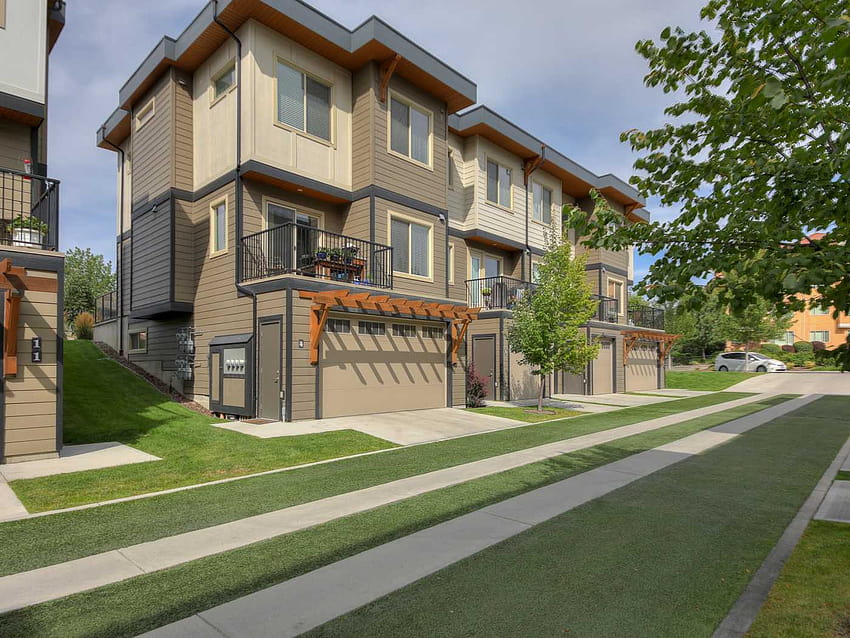Understanding the Lease: Tips for Tenants and Landlords
Understanding the Lease: Tips for Tenants and Landlords
Blog Article

Leasing a property can be a complex process for both tenants and landlords, filled with various rights, responsibilities, and potential pitfalls. Understanding the intricacies of a lease agreement is crucial for fostering a positive rental experience. This article aims to provide practical tips to navigate the leasing landscape, ensuring that both parties are informed and prepared for a successful arrangement.
In New Jersey, where the real estate market is dynamic, understanding your lease can make a significant difference. Companies like We Buy NJ Real Estate are dedicated to enhancing the local housing market by helping homeowners sell their properties quickly and professionally. By improving communities through buying, fixing, and selling real estate, they offer a reliable solution for those looking to transition smoothly, whether you are a tenant or a landlord. Gaining insights into lease agreements can empower you to make informed decisions and foster a beneficial relationship in the rental market.
Key Lease Terms
Understanding key lease terms is essential for both tenants and landlords to ensure a smooth rental experience. The lease agreement outlines the roles and responsibilities of each party, protecting their rights and setting expectations. Key terms to look out for include the duration of the lease, rent amount, and payment due dates. These elements provide a clear framework for the tenancy and help avoid misunderstandings.
Another important aspect is the security deposit. This is typically a monetary amount paid in advance to cover any potential damages or unpaid rent. Knowing the specific conditions under which the deposit may be withheld can save tenants from unexpected financial disputes when leaving the property. For landlords, a well-defined deposit clause can help clarify what constitutes damage versus normal wear and tear.
Lastly, lease terms should address maintenance responsibilities. This includes who is responsible for repairs and routine maintenance of the property. It's important for both parties to have a mutual understanding of these obligations to prevent conflicts. Clear communication about maintenance can greatly enhance the landlord-tenant relationship and ensure that the property remains in good condition throughout the lease term.
Understanding Tenant Rights
Tenants have specific rights that protect them within their lease agreements. One fundamental right is the assurance of a habitable living environment, which means landlords must maintain properties in a condition that is safe and suitable for living. This includes proper maintenance of plumbing, heating, and electrical systems, as well as ensuring that all aspects of the home comply with health and safety codes. When tenants find issues that affect their health or safety, they have the right to request repairs, and landlords are typically required to address these concerns in a timely manner.
Another critical aspect of tenant rights involves privacy. Landlords cannot enter a rental unit without providing proper notice to tenants, except in emergencies. This right enables tenants to feel secure in their homes, knowing that their personal space will not be intruded upon without their consent. Typically, landlords must give at least 24 hours’ notice before visiting for non-emergency reasons, such as inspections or repairs.
Get The Best Price
Additionally, tenants have the right to a written lease agreement that outlines the terms and conditions of their rental situation. This document serves as a legal contract between the landlord and tenant and should detail important aspects such as rent payment schedules, security deposits, and the rights and responsibilities of both parties. Understanding these terms is crucial for tenants, as it empowers them to advocate for their rights and seek resolution in disputes.
Landlord Responsibilities
Landlords have a crucial role in ensuring that their rental properties are safe, habitable, and compliant with local laws. They must maintain the physical condition of the property by conducting regular inspections and addressing any necessary repairs promptly. This includes ensuring that plumbing, heating, electrical systems, and appliances are in good working order. By proactively maintaining the property, landlords can not only fulfill their legal obligations but also foster positive relationships with their tenants.
Another important responsibility of landlords is to provide clear and transparent communication regarding lease terms, property rules, and any changes throughout the rental period. This includes providing tenants with a copy of the lease agreement and any amendments. Responsiveness to tenants' requests and concerns is essential for maintaining trust and ensuring tenant satisfaction. A good landlord remains approachable and willing to engage with their tenants, which can lead to long-term tenancies and a well-managed property.
Additionally, landlords must adhere to fair housing laws, which protect tenants from discrimination based on race, color, religion, sex, national origin, familial status, or disability. It is essential for landlords to apply consistent standards for screening applicants and to treat all tenants fairly. Understanding these responsibilities not only helps in maintaining compliance with the law but also enhances the overall rental experience for both landlords and tenants, ultimately benefiting the community as a whole.
Report this page